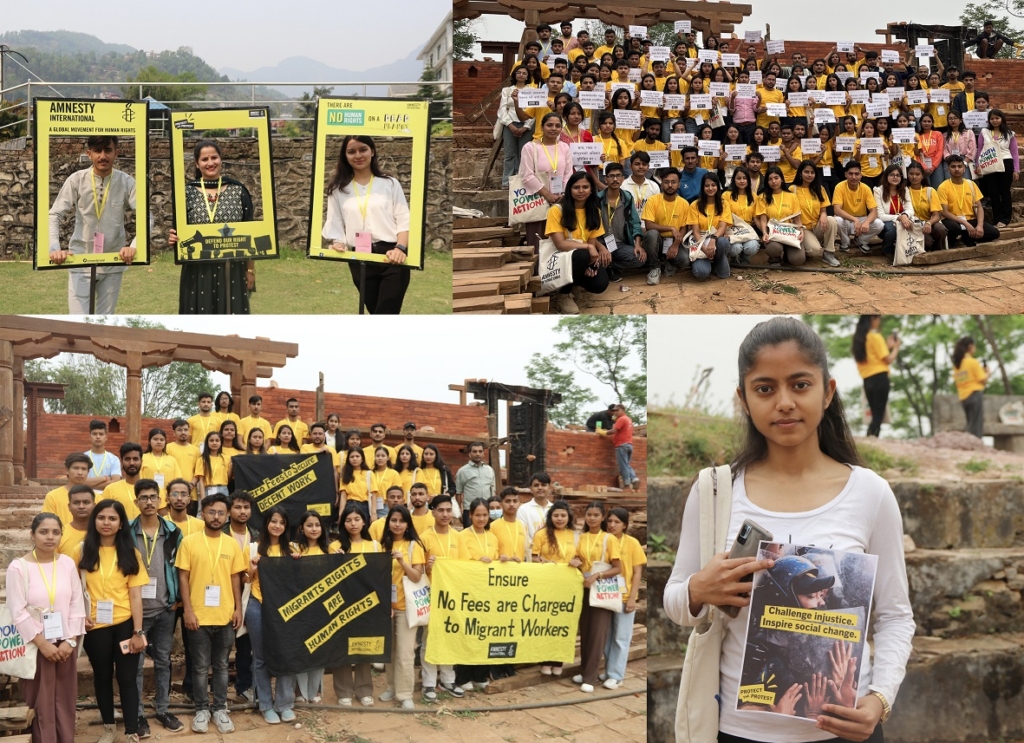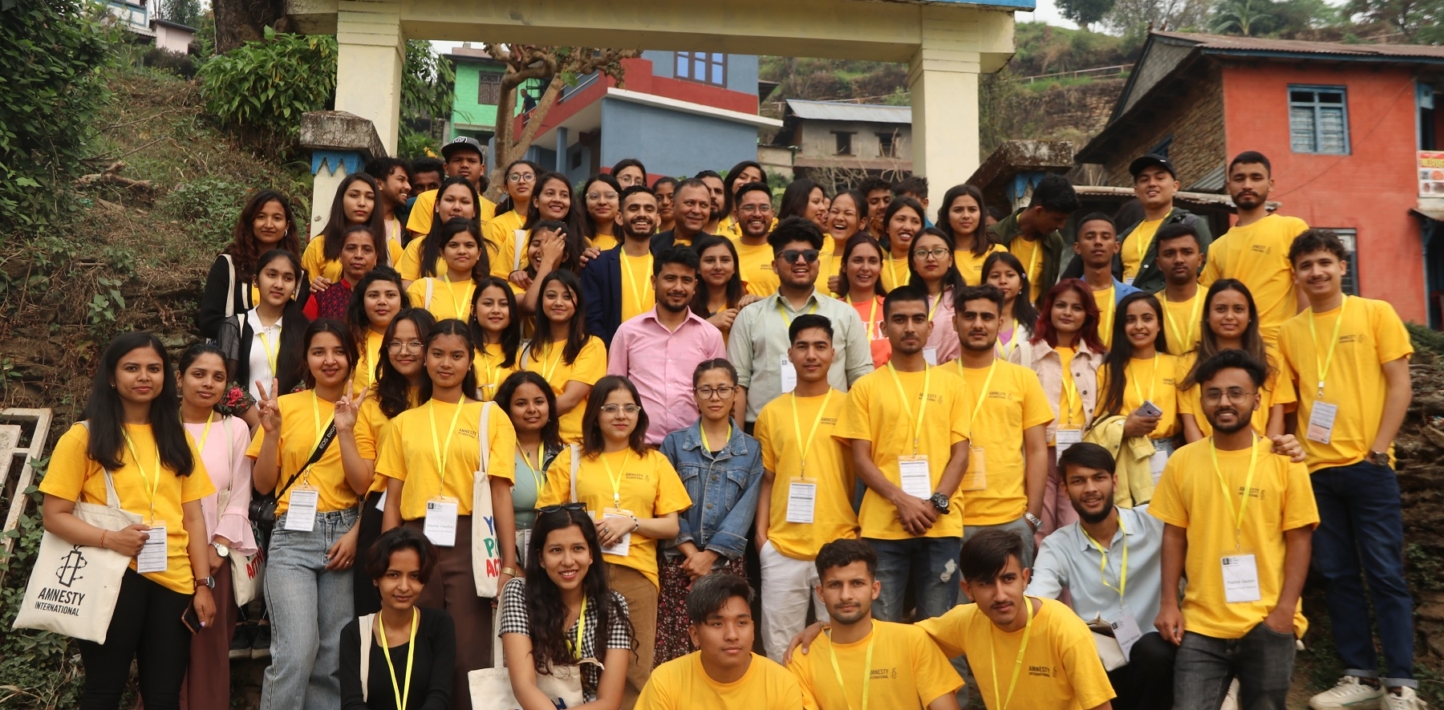Amnesty International Nepal organized the 15th edition of its annual Youth Mela in Besisahar, Lamjung, from 19 – 21 April 2023. Organized with the theme ‘Building Bridges, Breaking Barriers: Youths in Action’, the three-day festival focused on facilitating interactive programs centered on significant human rights issues for AI Nepal’s youth members who had gathered together in Lamjung from across Nepal.
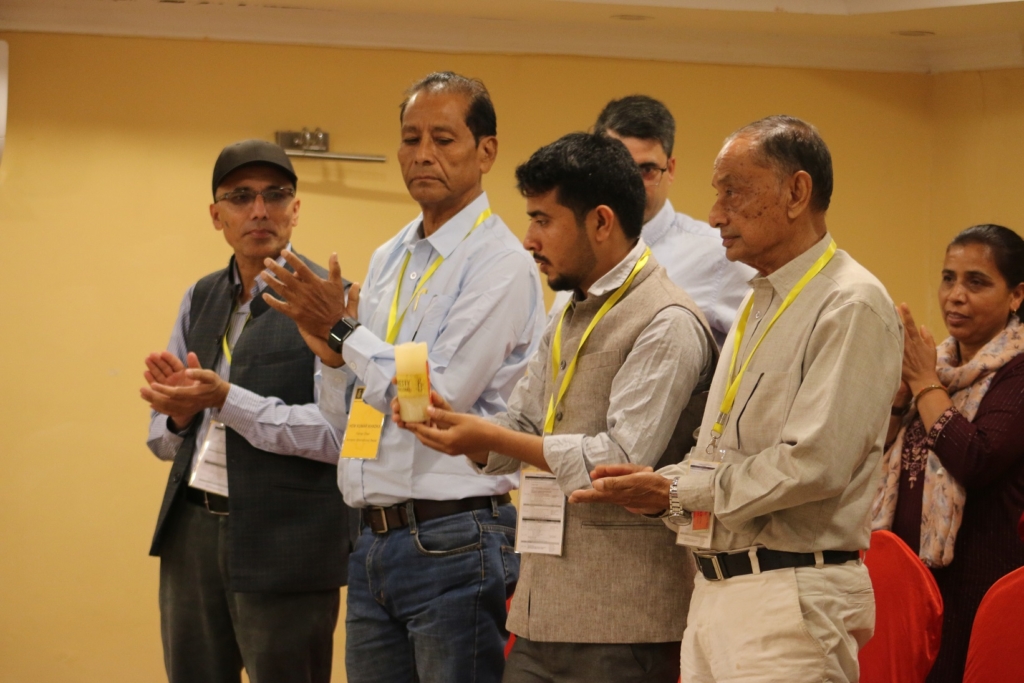
The event was officially inaugurated by Amnesty International Nepal’s Chairperson Bipin Budhathoki with Gandaki Province Assembly Member Bhesh Bahadur Paudel as the chief guest of the opening event.
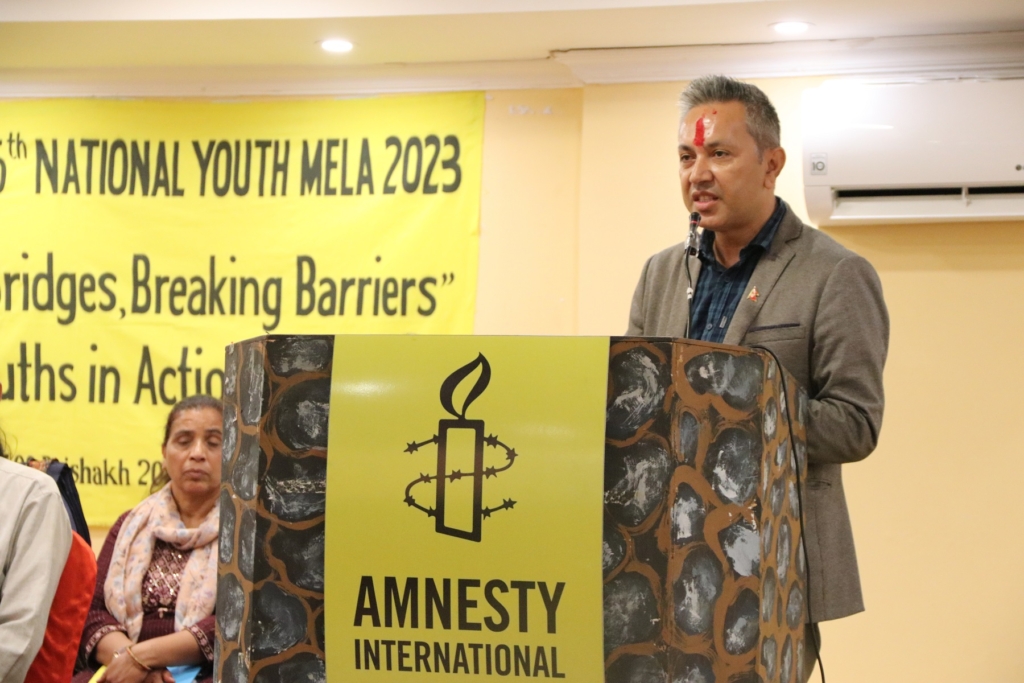
Addressing the participants during the inaugural session, Paudel said, “Youth are, and should be, playing an important role in all sectors of our country. Growing up, we didn’t have access to such platforms to exercise our rights and to lead, but I am glad that such programs are being held now to educate and train young minds because they are our future leaders.”
“Platforms like this where young people from across the country working in different sectors come together for a common cause are extremely important because young people are the voice that can demand and bring change. They are the thinkers and doers, and we need them to make a new Nepal,” he added.
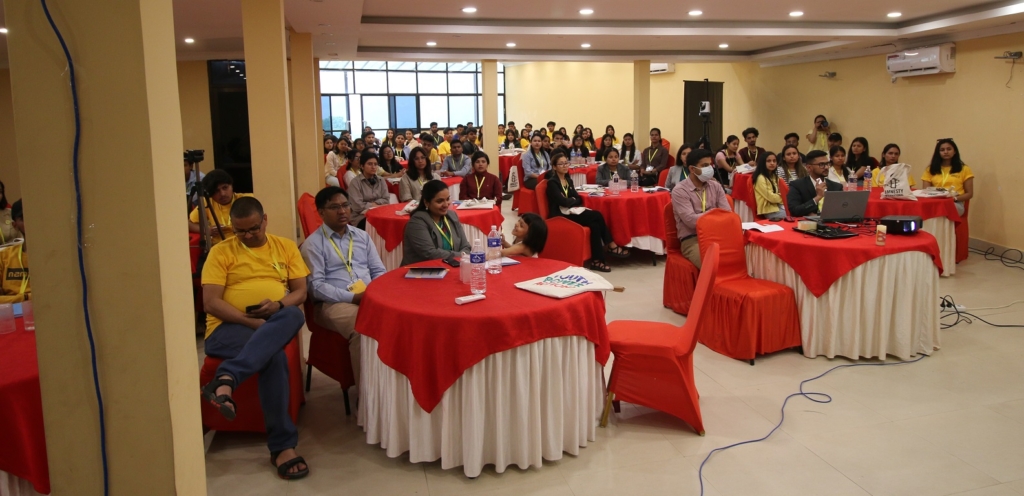
Around 150 youths representing more than 50 youth networks and supporters of Amnesty Nepal based in different parts of the country attended the event.
Since its inception in 2006, the Youth Mela has worked towards sensitizing youth members of Amnesty International Nepal towards the various human rights campaigns it works with through various workshops, presentations, and activities over the course of the three days.
This year, the programming saw participants engaging in and discussing various topics, such as the role of young people in bringing about change, the importance of human rights education, transitional justice, LGBTQI rights, housing rights, youths in tackling climate change, the correlation between media and human rights, among others.
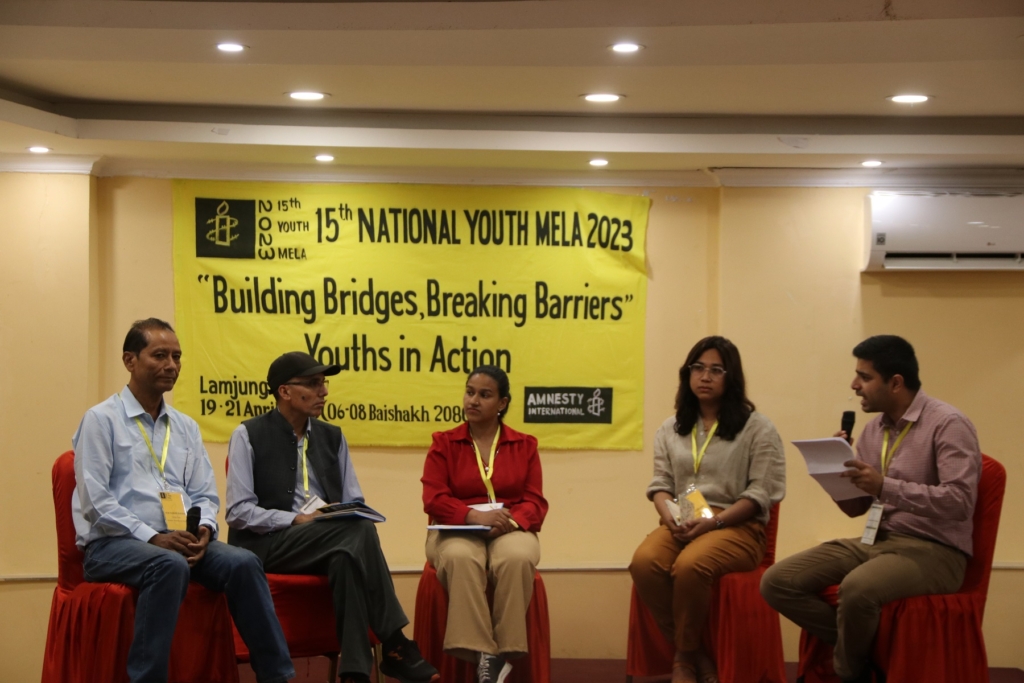
The event started with a panel discussion on the topic ‘Engaging and enabling youths through intergenerational dialogue and trust’ which consisted of speakers from different sectors to give a well-rounded perspective on various human rights abuses for the participants. The panelists were Sabitri Thapa, from Nepal Mahila Ekata Samaj; Suman Adhikari, founding Chair of Conflict Victims’ Common Platform; Hem Kumar Khadka, former chair of AI Nepal; and Diya Yonzon, from Intersex Asia. The discussion was facilitated by Kundan Raj Sharma, AI Nepal’s Human Rights Education Officer.
The second day of the Youth Mela kicked off with Amnesty Nepal’s Director Nirajan Thapaliya facilitating a session detailing the cornerstones of human rights and the key human rights issues of Nepal. This was followed by a session by Chairperson Bipin Budhathoki where he educated youth members on how Amnesty International undertakes its human rights work and how its members, supporters and volunteers contribute to promote and protect human rights across the world.
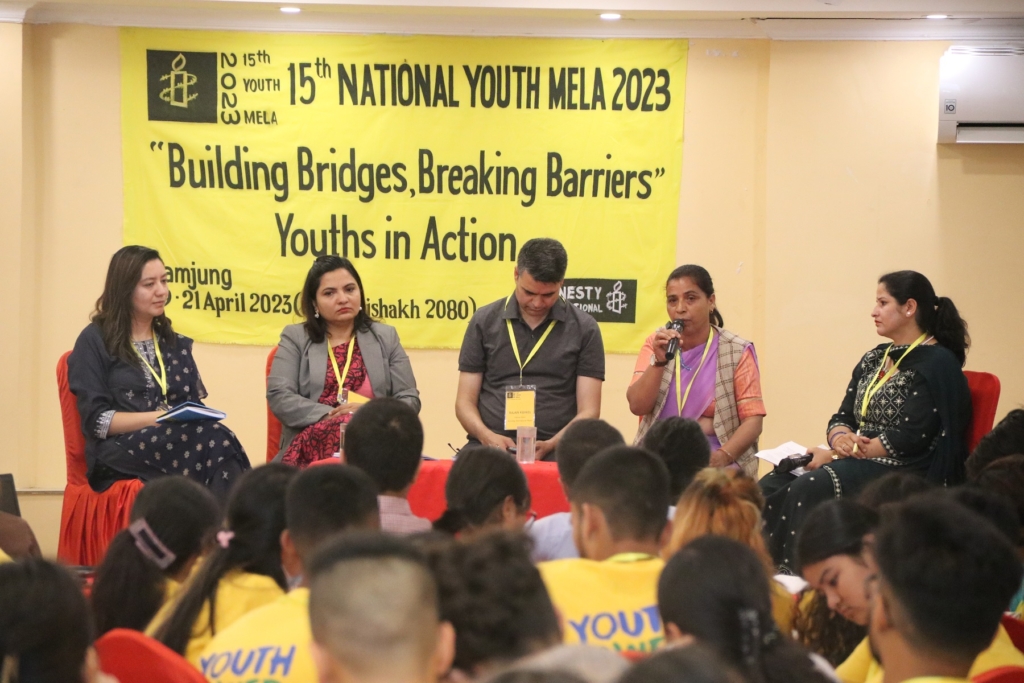
This was followed by a panel discussion titled ‘Striving for a more impact-oriented AI Nepal human rights campaigns through continuous reforms’, with Rajan Kuikel, Parbata Acharya, Rama Paudel and Priyanka Adhikari. After which, Amnesty Nepal’s Campaigns Coordinator Ashmita Sapkota spoke about the major campaigns Amnesty International and Amnesty International Nepal are currently working with. She informed the participants about how people’s right to protest, the rights of migrant workers, gender justice, transitional justice are the priority areas of work for Amnesty Nepal at the moment.
Suman Adhikari shared his long road to transitional justice which still has no end in sight. Adhikari is the son of Muktinath Adhikari, a teacher and a member of Amnesty International Nepal, who was killed in Lamjung in 2003 (20 years ago) by the Maoists during the insurgency. In another session, Diya Yonjon familiarized youth participants on Sexual Orientation, Gender Identity and Expression, and Sex Characteristics (SOGIESC) issues.
This was followed by a session on Climate Justice and the role young people play in it, which was held by Kundan Raj Sharma, AI Nepal’s Human Rights Education Officer, and Marissa Leena Taylor, Media and Communications Coordinator.
Wrapping up the day, Kundan Raj Sharma then spoke about the crucial role Human Rights Education plays in strengthening AI Nepal’s efforts in the masses and in empowering people through education.
The third day included a session facilitated by members of the National Board: Garima Pandey, Manju Biswokarma, and Barun Kuinkel. The session urged youth members to reflect and discuss the challenges and opportunities youth members are currently witnessing in light of the Membership Reform Agenda. This was followed by debate among youth members on the topic of ‘Forced Eviction’.
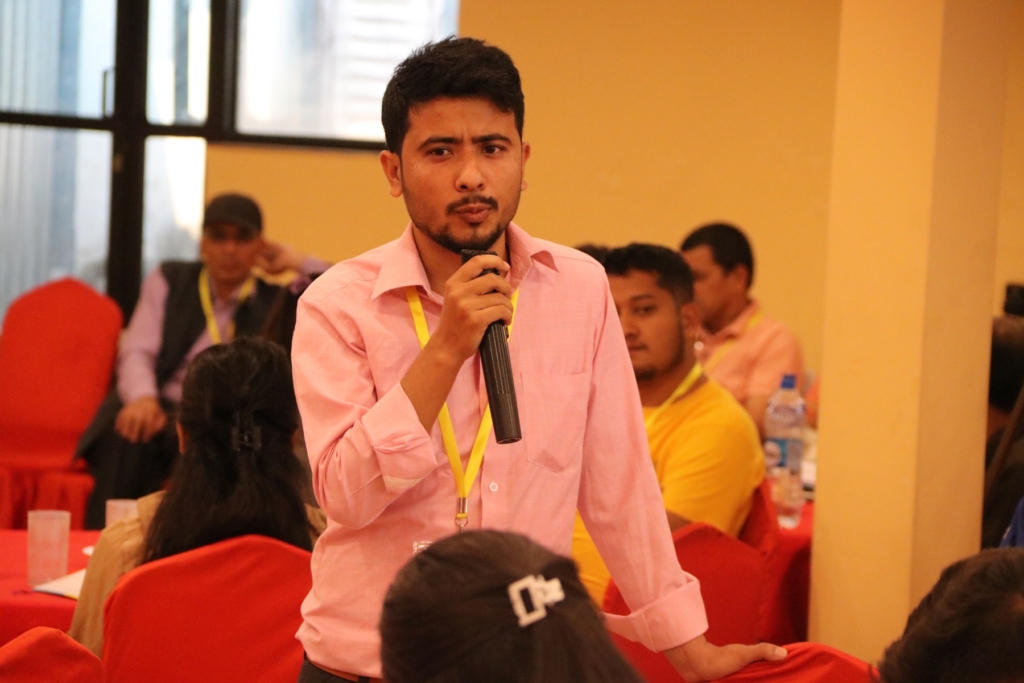
Concluding the event, Amnesty Nepal’s chairperson Bipin Budhathoki shared the prospects and opportunities for youth members to accelerate the human rights movement. His session motivated the participants to proactively engage in activism with Amnesty and to learn, build and claim leadership roles within the organization.
The youth participants at the Mela also took a photo action demanding climate justice, the right to protest, equal rights for the women in Afghanistan, justice for victims who suffered during the construction of the FIFA World Cup stadiums, among other pertinent issues. They also engaged in activities of artistic expression, by showcasing drama, reciting poetry, singing, among others.
The Mela concluded on 21 April with reflection and feedback from the participants and the distribution of certificates of participation.

